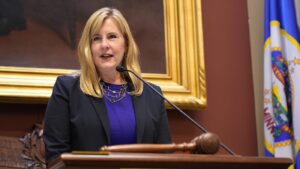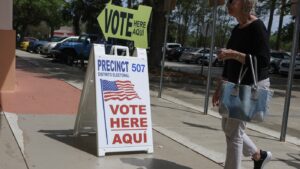National Parks to Encourage Visitor Feedback on Historical Narratives
In a move to reshape the narrative of American history, the Department of the Interior is mandating the National Park Service (NPS) to display signage at all national sites by June 13. This initiative aims to gather visitor input on historical information that may be perceived as negative.
A June 9 memo addressed to regional directors, authored by NPS comptroller Jessica Bowron and leaked to NPR, outlines the directive. The memo aligns with President Trump’s “Restoring Truth and Sanity to American History” executive order issued in March. This executive order, along with a subsequent directive from Interior Secretary Doug Burgum, emphasizes the removal of content seen as disparaging and highlights the achievements of Americans.
Under the section titled “Encouraging Public Participation,” Bowron specifies, “All NPS units are required to post signage that will encourage public feedback via QR code and other methods that are viable.”
A sample sign intended for Wilson’s Creek National Battlefield in Missouri, a key Civil War site, has been shared with NPR. This sign requests visitor input on any negative portrayals of Americans, both past and present, and seeks to emphasize the beauty and richness of natural landscapes. Additionally, visitors are invited to comment on areas needing repair or improvement.
Moreover, the memo tasks parks with a mid-July deadline to scrutinize all public-facing materials for potentially disparaging content. This review extends to other Department of the Interior entities, including the Bureau of Land Management and the Bureau of Indian Affairs, but excludes properties on Native American lands unless they are part of the NPS.
Rachel Pawlitz, a spokesperson for the Park Service, remarked, “This order reaffirms the NPS mission by emphasizing the importance of accuracy in how we tell stories of American history. Our visitors come to national parks to celebrate the beauty, abundance, and grandeur of America’s landscapes and extraordinary multicultural heritage. This allows them to personally connect with these special places, free of any partisan ideology.”
Nonetheless, the directive has sparked concern among some groups. Theresa Pierno, CEO and president of the National Parks Conservation Association, cautioned against altering historical narratives, stating, “It’s pretty dangerous when you start rewriting history. It’s so important that we learn from our history. To think that that could be erased or changed because visitors might prefer that story not be told – or not be told accurately – is frightening.”
This article was originally written by www.npr.org







Be First to Comment